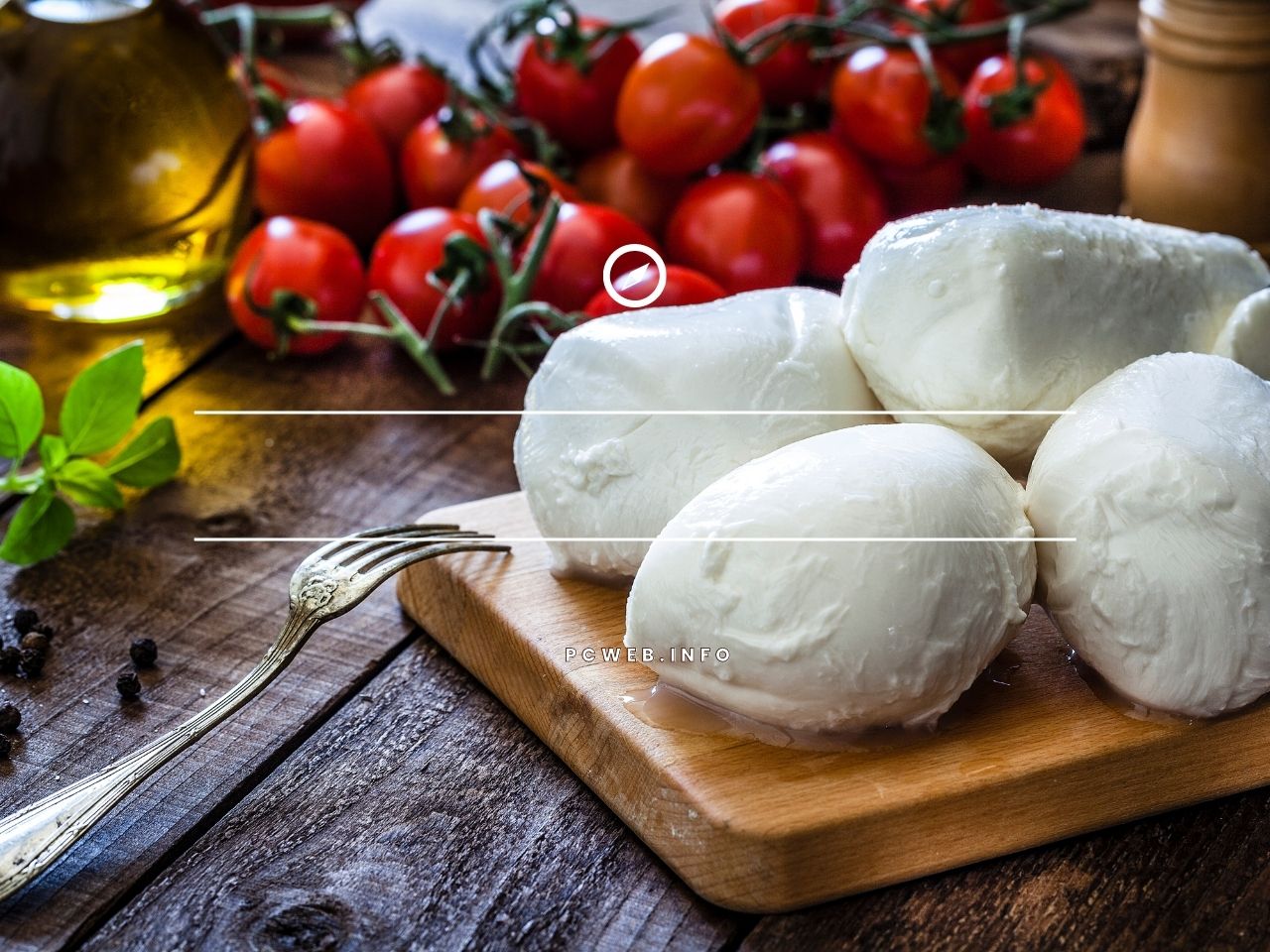Mozzarella cheese during pregnancy, is it safe to eat? Isn’t it dangerous? We have seen recently in the post entitled Cheese during pregnancy, a summary and a compendium of all cheeses and their link with pregnant women. But it seemed reasonable to include an item specialized in this particular cheese, which in English is written as Mozzarella and is the most used although it is also suggested, in Spanish, to write it as Mozarela.

Mozzarella is a delicious and nutritious cheese that can bring many benefits to your health and that of your baby during pregnancy. However, not all mozzarellas are safe to consume at this stage, as some may be contaminated with dangerous bacteria such as listeria. Therefore, it is important that you follow some tips to choose and eat mozzarella safely.
Pasteurized milk
First of all, you need to make sure that the mozzarella you buy is made with pasteurized milk. Pasteurized milk is one that has undergone a thermal process that eliminates microorganisms that can cause disease. Most industrial mozzarellas sold in supermarkets are made with pasteurized milk, but you should read labels carefully to check. If you buy artisanal mozzarella or outside the circuit of large distribution, you should be more careful and avoid those that are made with raw or unspecified milk.
You can eat mozzarella both raw and cooked, as long as it’s pasteurized milk. Raw mozzarella is an excellent accompaniment to salads, vegetables or fruits. Cooked mozzarella is ideal for gratin, melting or filling dishes such as lasagna, pizzas or cannelloni. In both cases, you will enjoy its mild and creamy flavor and its contribution of proteins, calcium and healthy fats.
Refrigeration and consumption before the expiry date
Secondly, you should keep the mozzarella in the refrigerator and consume it before its expiration date. Mozzarella is a fresh, moist cheese that can easily deteriorate if not stored properly. In addition, you should wash your hands thoroughly before handling it and avoid contact with other foods that may be contaminated.
Is it good or bad for health?

Mozzarella cheese is a type of fresh cheese that is made from cow’s or buffalo’s milk. It has a mild flavor and elastic texture that makes it ideal for melting or gratin.
The answer depends on several factors, such as the amount consumed, the quality of the product and the conditions of each person. Mozzarella cheese has benefits and risks that should be known.
Among the benefits, mozzarella cheese provides proteins of high biological value, calcium, phosphorus, magnesium and B vitamins. These nutrients are essential for the maintenance of bones, muscles, nervous system and energy metabolism. In addition, mozzarella cheese contains probiotics that support intestinal health and the immune system.
Among the risks, mozzarella cheese is high in saturated fat and cholesterol, which can increase the risk of cardiovascular disease if consumed in excess. It is also high in sodium, which can raise blood pressure and cause fluid retention. On the other hand, mozzarella cheese can cause allergies or intolerances in some people, especially if it is buffalo milk.
In conclusion, mozzarella cheese is a food that can be enjoyed in moderation and within a balanced and varied diet. It is important to choose a quality product, preferably organic and with designation of origin. This ensures better taste and greater food safety. Mozzarella cheese is a versatile ingredient that can be combined with vegetables, fruits, bread, pasta or pizza.
Fattening?
Mozzarella cheese is one of the lowest fat and low-calorie cheeses out there. You just have to moderate the amount you consume and choose a light or skimmed version. So you can enjoy the delicious taste of mozzarella cheese without guilt or regrets.
Calories: Mozzarella cheese during pregnancy
A 30-gram serving of this delicious cheese has only 85 calories, while other cheeses may have more than 100.
Diet
Here are some ideas to incorporate it into your dishes in a balanced and tasty way:
– Caprese salad: combine slices of mozzarella cheese with fresh tomato, basil, olive oil and salt. It is a light and refreshing salad, ideal for summer.
– Homemade pizza: prepare a thin dough with whole wheat flour, water, yeast and salt. Top with tomato sauce, grated mozzarella cheese and the ingredients you like the most: ham, mushrooms, olives, etc. Bake until the cheese melts and enjoy a homemade and healthy pizza.
– Mozzarella and avocado cheese sandwich: toast two slices of wholemeal bread and spread one of them with crushed avocado. Place a few slices of mozzarella cheese on top and close the sandwich with the other slice of bread. You can also add lettuce, tomato or whatever you prefer. It is a nutritious and creamy sandwich that will fill you with energy.
Disadvantages
Mozzarella cheese is a type of cheese that is widely used in Italian cuisine, especially in pizzas and salads. It has a mild flavor and an elastic texture that makes it very versatile. However, it also has some disadvantages that should be known before consuming it in excess.
One of the main disadvantages of mozzarella cheese is its high content of saturated fats, which can be harmful to cardiovascular health. According to the website Alimente, approximately 65% of the fats contained in this type of cheese are saturated (more than 11 grams per 100 grams of product). These fats raise the level of cholesterol in the blood and increase the risk of heart attacks, angina or strokes.
Another disadvantage of mozzarella cheese is its high sodium intake, which can contribute to high blood pressure and fluid retention.
Finally, mozzarella cheese can also cause digestive problems in some people, especially if they have lactose intolerance or allergy to milk protein. Lactose is the sugar found in dairy products that some people can’t digest well. This can cause bloating, gas, or diarrhea. Milk protein allergy is an immune system reaction that can cause symptoms such as hives, shortness of breath, or anaphylaxis.
In conclusion, mozzarella cheese has its benefits, such as its protein, calcium and vitamin A content, but it also has its disadvantages, such as its content in saturated fats, sodium and lactose. Therefore, it is recommended to consume it in moderation and prefer harder and less salty cheeses, such as cheddar or parmesan.
Conclusion: Mozzarella cheese during pregnancy
Mozzarella is a cheese that you can include in your diet during pregnancy without problems, as long as you follow these recommendations. So you can take advantage of its nutritional properties and culinary versatility without risking your health or that of your baby. Remember that a balanced and varied diet is essential to ensure the well-being of both during this special stage.
Read also: Burrata Cheese During Pregnancy; Gorgonzola cheese and pregnancy; Yes to pecorino cheese during pregnancy? Grana Padano Cheese During Pregnancy
External resource: Wikipedia
This post is also available in:
![]() English
English ![]() Deutsch (German)
Deutsch (German) ![]() Español (Spanish)
Español (Spanish)
